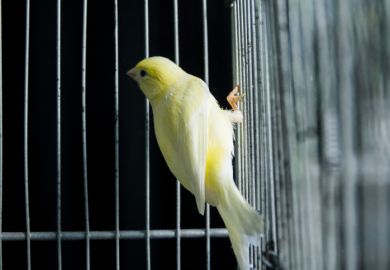Anyone of an anxious disposition does not want to be remembered for the kind of misplaced insouciance that destroyed the reputation of former Prime Minister Jim Callaghan. “Crisis. What crisis?” was The Sun’s famous headline paraphrasing Callaghan’s response, on returning from a summit in Guadeloupe in January 1979, to the widespread industrial unrest – known as the Winter of Discontent – that brought Margaret Thatcher to power and shut out the Labour Party for 18 years. So I hesitate to dismiss talk of a crisis in the humanities, even though I have lived through more crises in the humanities than revolutions in political science.
We live in a crisis-strewn culture; no use pointing out that we are healthier and less likely to die prematurely of disease or from acts of violence than ever before; better housed and better fed; better provided with the means of entertaining ourselves; and so on. The human mind is less attuned to contentment than anxiety; it’s one reason why politicians are always complaining that the electorate is ungrateful, taking past benefits for granted, punishing governments for not making life still better, always ready to blame the government for some hitherto unperceived threat. No doubt there is some explanation for this, buried deep in the living conditions of our most distant ancestors, but it does make us prone to panic in the face of uncertainty. So, it’s crises galore – banking crises, healthcare crises, funding crises – everywhere you look.
Educational crises are never resolved in the terms in which they are presented; we just get tired of being anxious about whatever issue has exercised us and move on to the next
In education, crises in the humanities sometimes alternate with crises in the sciences, crises in higher education with crises in schools, sometimes they cumulate, not least in the minds of critics lamenting the wholesale collapse of intellectual and cultural standards from kindergarten to graduate school. The most obvious feature of educational crises, however, is that they are never resolved in the terms in which they are presented; we just get tired of being anxious about whatever issue has exercised us and move on to the next. After Allan Bloom had in 1987 written an unlikely best-seller in the shape of The Closing of the American Mind there was no sudden reopening of the American mind, if anything rather the reverse.
One of the great crisis documents of the now-distant past of British higher education was C. P. Snow’s 1959 Rede Lecture, The Two Cultures; its complaint was that the unwillingness of British higher education to take the sciences seriously infallibly meant that the Russians would, in short order, eat our lunch. Two years earlier, they had launched Sputnik, and two years later would send Yuri Gagarin into space, while the Brits had scarcely managed to open a few miles of the M1 motorway. The indictment was familiar in the 1950s and 1960s; Britain was governed by the people who had run the Empire, trained in Classics and history, were good at Greek but bad at Russian, sound on the reign of Edward III but prone to dismiss chemistry as “stinks”, and to look down their noses at that familiar target of Oxbridge contempt “the northern chemist”.
Times change. Now, the anxiety is…it’s not really clear what the anxiety is, let alone whether it’s the same anxiety on both sides of the Atlantic. In the US, the troubles of the humanities get confused with the long-standing anxiety over the mismatch between the production of PhDs in the humanities – and social sciences – and the number of university posts available for the newly minted PhD. Two decades ago, it was horror stories about cab drivers with PhDs; nowadays, the horror stories are about people taking jobs as adjunct professors that pay them only $2,000 (£1,300) or so for teaching an entire course. Their employers are not all of a piece: online for-profit providers want to pay as little as possible for the courses they profit from; public institutions, particularly but not only community colleges, have been squeezed by hard-up state governments. One might have little sympathy with local politicians who promised generous pensions to police and other public workers and low taxes to the public who were to pay for them, but it is certainly true – witness Detroit – that the finances of cities and states are in a bad way. As to the humanities in particular, small language departments are always vulnerable in financial squeezes, and even in prosperous private schools, administrators are bound to pay more attention to expensive subjects – medicine, especially – than to the less costly ones. Student numbers show no particular trend, but outside the elite colleges, traditional liberal arts education lost out to business studies and the like decades ago.
In the UK, everything rotates around the latest enthusiasm on the part of the government. In a climate of cutbacks, Peter will be robbed to pay Paul; if science, technology, engineering and mathematics subjects are prioritised, humanities will be short-changed. Or everyone will be short-changed, but humanities more so. It looks obvious that putting such funds as the government thinks it has into science, technology and medicine is the way to get a more scientifically competent cadre of managers and entrepreneurs, but it may not be true. The absolute number of people needed at the sharp end of scientific research is a small proportion of the 40 per cent or so of the age cohort that now goes on to higher education. It’s less our own scientific breakthroughs than the intangible drive to turn other people’s ideas into useful, or marketable, products that puts the fire into an economy; in the UK, that drive has, in the past four decades, more often been directed towards financial engineering than towards creating things that enhance everyday life. But that’s not a failure of British science; if anything might help us to understand why it has happened, it’s economic history and social psychology – themselves likely to benefit from an infusion of literary imagination.
Register to continue
Why register?
- Registration is free and only takes a moment
- Once registered, you can read 3 articles a month
- Sign up for our newsletter
Subscribe
Or subscribe for unlimited access to:
- Unlimited access to news, views, insights & reviews
- Digital editions
- Digital access to THE’s university and college rankings analysis
Already registered or a current subscriber? Login




